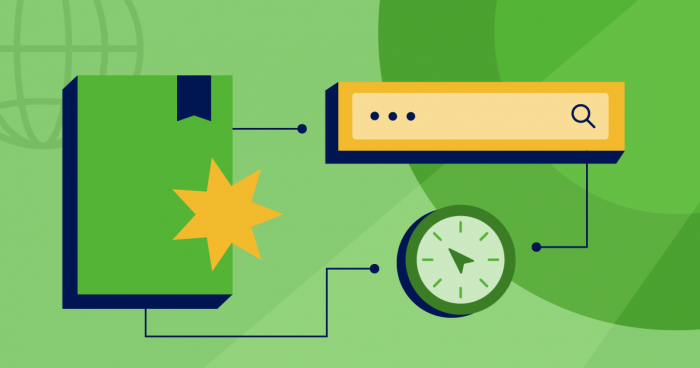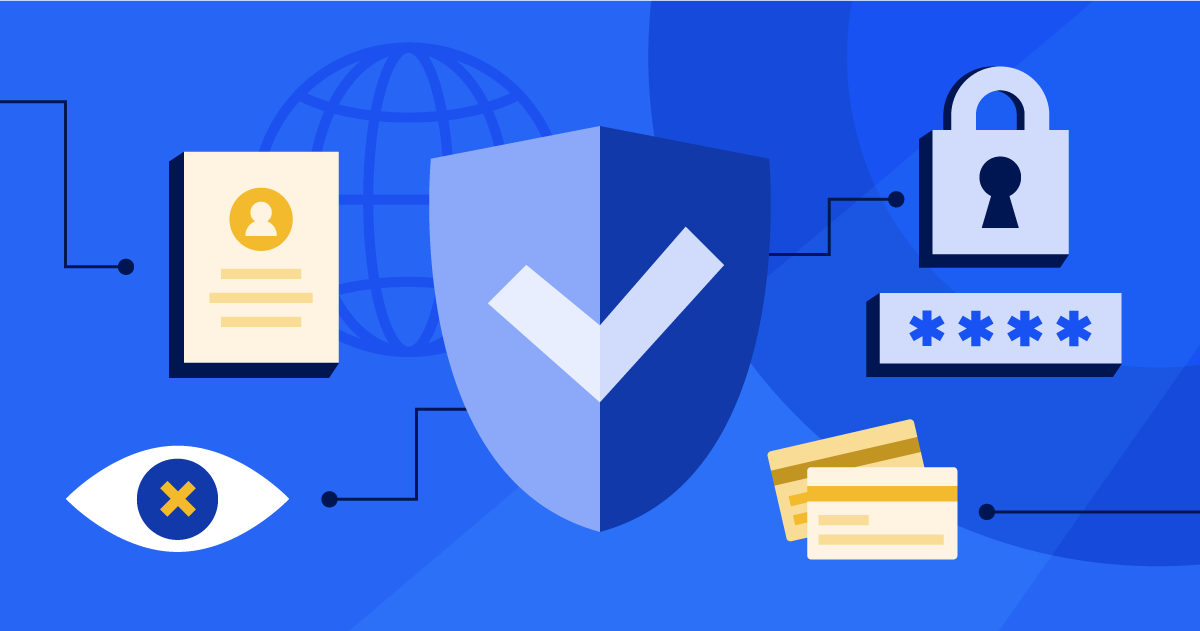When someone talks about “parking” a domain, they’re referring to registering a domain name without putting it to immediate use. That means that the domain name isn’t being actively used for a website or any email hosting. It’s “parked” for future use.
Whether you’ve come across a parked domain that you want to purchase or you’re wondering how to make the most of your own parked domain, the following guide will tell you what you currently need to know. We’ll talk about what it might look like if you encounter a parked domain in the wild, your choices when your ideal domain name is parked, and how to decide if parking a domain makes sense for you.
What Does a Parked Domain Look Like?
Maybe you’ve landed on a website and want to know if it’s parked or not—or you’re interested in what you can accomplish with a parked domain. Either way, here is a list of things someone might see when visiting domain that’s been parked:
1. An error page.
When there is no data to retrieve for a website, your browser will tell you that the site cannot be reached. This will look the same as if you navigated to a domain name that didn’t yet exist.
2. A standard domain parking page.
Sometimes domain registrars provide parking pages that will let you know the domain has been registered. This is generally an option you can set up within your domain management control panel.
3. A custom “Under Construction” or “Coming Soon” page.
This will require a landing page and the use of a web hosting service. Since this option does involve an actual site page, it isn’t technically considered a parked domain. But it’s worth knowing that this is an option.
4. Ads.
There are a ton of domain parking services that will pay you a few cents anytime someone lands on your site and clicks on one of their ads.
5. A for sale sign.
People actively looking for a buyer for their parked domain might provide their contact information and their price for the domain.
Why Park a Domain?
People park domains because the domain name game functions on a first-come-first-served basis. If a domain name you want is available, you should 100% jump on it, even if you don’t have a site built to use with it yet.
Think about it like this. You spot a deal for your dream car and know that you can’t pass up on the price, even though you don’t have a driver’s license or car insurance yet. But you go ahead and get the car, and park it in your garage, and hang onto it until you do have those things.
Other times, people will register a domain name that they think will be valuable to someone else later. Imagine you see the same great deal for a car and, even though it isn’t your dream car, you know someone will pay a higher price for it in the future.
Can I Make Money With Domain Parking?
An alternative reason someone might park a domain is to generate income from advertising, also called “cash parking.” However profitable this was in the past, monetized domain parking is not particularly lucrative these days unless you truly have a large volume of parked domains. The main reason is that search engines will not include parked domains in their results.
So, remember that car sitting in your garage? Consider now that you’ve stuck some magnetized advertisements on the car doors. Well, no one is going to see those ads unless they find their way to your address and into your garage. In the same sense, people won’t be clicking ads on your parked domain unless they’re purposefully navigating to that URL.
There are a few reasons that this would still work. You might register domain names that are typos of URLs that get tons of traffic. Or you might pick up an expired domain that still has people visiting it, or that has a lot of backlinks.
A final note—there are times when monetizing a parked domain can attract legal issues if you’re infringing on a trademark or on someone’s name. Make sure that what you do with your parked domain cannot be considered cybersquatting.
When the Domain You Want is Parked
Whoever gets to a domain name first is the one who gets to register it, and they can charge whatever they see fit for it. If you see that your desired domain name is parked, you can do some quick research and contact the owner to negotiate a deal.
The domain’s landing page may contain the current owner’s contact information, but if not, you can conduct a WHOIS database search to see what is listed there. Even if you just see the owner’s domain registrar’s details, your message and offer will still be passed along. You can also check out domain aftermarket sites to find out if the owner has listed the domain for sale there.
Make an offer, be ready to negotiate, and know that the ball is ultimately in the seller’s court. If they reject your offer in the end, you’ll have to consider choosing a new domain name. In the meantime, you can keep an eye on the domain’s status and try to save up until the domain name is more affordable for you.
How To Keep a Parked Domain Secure
If you’ve decided to park a domain, there are a few key steps to take to make sure that it remains safe until you can put it to good use. Because, if you aren’t regularly monitoring the activity on your domain or registrar account, you could easily miss threats to your domain security.
1. Lock your domain.
As soon as you finalize your domain registration, active domain locking to stop any unauthorized transfer attempts.
2. Choose a registrar that offers WHOIS privacy.
A secure registrar will offer WHOIS privacy (ideally at no cost). This means that internet users won’t be able to connect your site directly to your personal information. Instead, the domain registrar provides their own contact information and passes on any messages to you privately.
3. Register your domain for longer periods of time.
Domains expire and require annual renewal fees. But we all know that life happens, credit cards expire, and things like domain renewal emails fall through the cracks. By registering your domain for longer chunks of time, up to ten years on Domain Registry, you don’t have to worry about losing your domain each and every year.




